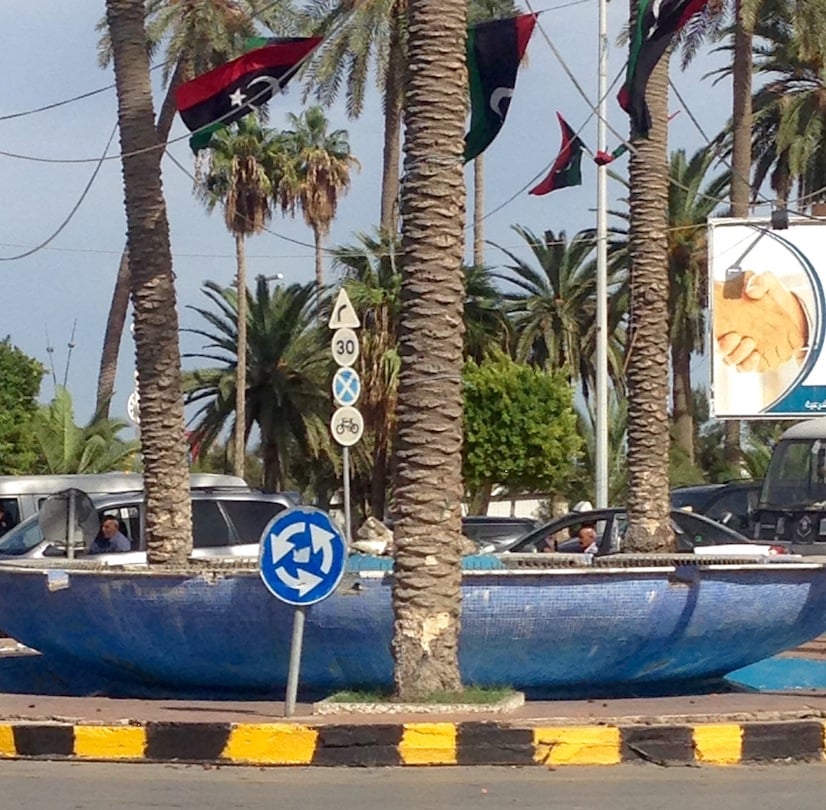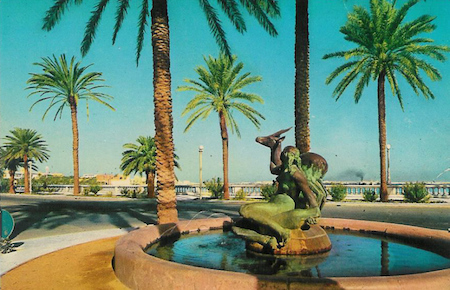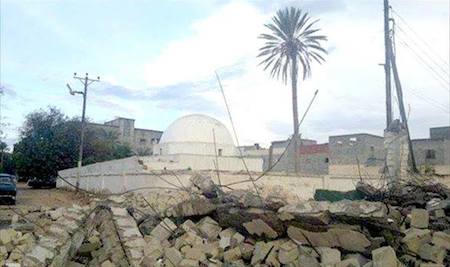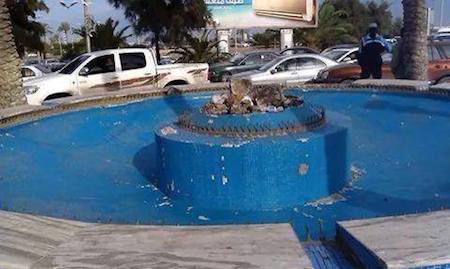By Ali Salem.

Tripoli, 04 November 2014:
Tripoli residents were shocked this morning to awake . . .[restrict]to find the iconic gazelle and naked woman fountain on the corniche gone. All that remains is part of the base, showing that the bronze statue was wrenched off its pedestal, probably by a mechanical digger.
There have been a number of threats over the past year to destroy the fountain from extremist who considered it immoral.
“There was security information about the intent of some people to demolish the statue,” Tripoli Head of Facilities in the Tripoli local council Husam Bash Emam told the Libya Herald.
“It is a shock – the statue was considered one of the most beautiful landmarks of Tripoli,” Bash Emam added.
Claims by Libya Dawn supporters online that the statue has simple been taken away for repairs after it was badly damaged in a previous attack by vandals have been dismissed by local residents who point out that the remains of the fountain show that the statue was ripped off and that the incident happened in the middle of the night, not a time when workers are operating.
The claims have also been effectively refuted by Tripoli Local Council which has condemned the vandalism, called for a investigation into the attack and promised that the culprits will be caught. It also promised to protect other cultural artefacts in the capital.
The statue was badly damaged in August, after Libya Dawn took over Tripoli. A missile was fired at the Italian-era fountain, punching a gaping hole in the belly of the nude woman.
Locally known as the Ghazala fountain, it was a Tripoli landmark and regarded with considerable affection by the capital’s residents. The woman was supposed to represent the spirit of Tripoli, which is known in Arabic as Arus Al-Bahr (the Bride of the Sea). She is the “bride”.

It was also referred to as the mermaid fountain. The assault on Tripoli that resulted in the city’s liberation on 21 August 2011 was known as Operation Mermaid Dawn.
The demolishing of the statue has caused real sadness to many residents in Tripoli.
“We were very sentimental about the statue. They have deprived us of one of the most beautiful landmarks of our city,” Tripolitanian Amal Shibani told this paper tearfully.
The destruction also seriously damages claims by Libya Dawn and the Hassi regime that the capital is safe and that law and order prevails there – a point seized on by the government in Beida in its condemnation of the incident. Those who carried out the detraction were uncultured, mindless vandals, it declared.
However, on Libyan extremists’ websites, some have welcomed the incident and threatened that their next step will be the statues inside Tripoli’s antiquities museum which has some of the finest Roman and Greek remains in the world.
This morning also has witnessed an attack on another landmark in the capital. A 700-year old shrine in Suq Al-Juma was demolished in an explosion.

[/restrict]








